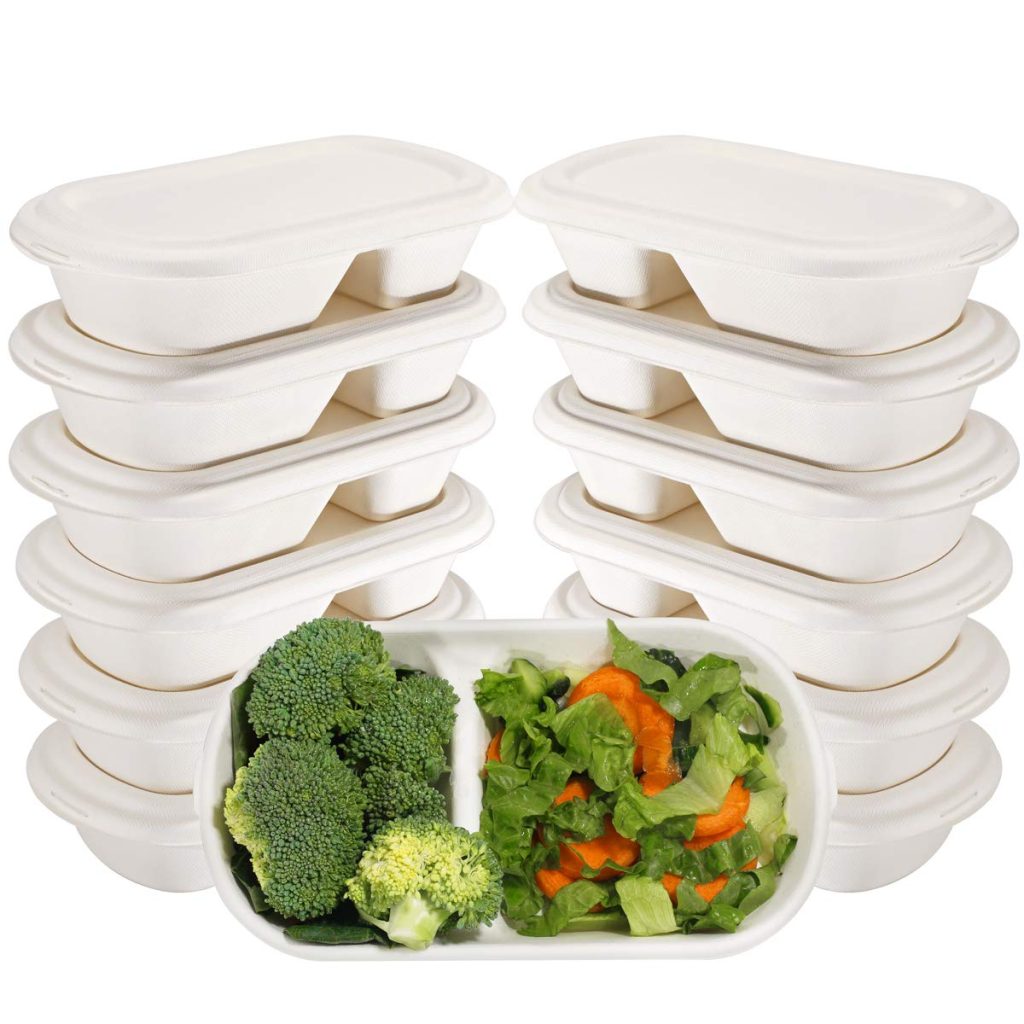Biodegradable food containers have emerged as a crucial component in the global effort towards environmental sustainability. As our awareness of the detrimental impacts of plastic waste grows, the demand for alternatives that minimize ecological harm has intensified. Here’s why biodegradable food containers are essential in fostering environmental responsibility. Firstly, traditional plastic containers pose significant environmental threats. Most plastic items take centuries to decompose, contributing to the vast accumulation of non-biodegradable waste in landfills and oceans. This accumulation has severe consequences for wildlife, marine ecosystems, and even human health through microplastic ingestion. Biodegradable containers, on the other hand, are designed to break down naturally over time, reducing their persistence in the environment and lessening their ecological footprint. Moreover, the production of biodegradable containers often involves renewable resources such as plant-based materials like cornstarch, sugarcane fiber, or bamboo. These materials can be replenished relatively quickly compared to fossil fuels used in traditional plastic manufacturing.
 By shifting towards biodegradable alternatives, we can decrease our dependence on finite resources and promote sustainable practices in the packaging industry. Another critical aspect of biodegradable food containers is their potential to reduce greenhouse gas emissions. The manufacturing process for traditional plastics typically involves the extraction and processing of petroleum, which is energy-intensive and releases greenhouse gases into the atmosphere. In contrast, biodegradable materials generally have lower carbon footprints, especially when sourced from responsibly managed agricultural or forestry practices. This shift helps mitigate climate change by curbing emissions associated with plastic production. Furthermore, biodegradable containers contribute to the circular economy model by supporting composting initiatives. Unlike conventional plastics, which often end up in landfills or incinerators, biodegradable materials can be composted along with organic waste. Composting not only reduces the amount of waste sent to landfills but also produces nutrient-rich compost that can enrich soil health and support sustainable agriculture. In addition to their environmental benefits, biodegradable food containers also cater to consumer preferences for eco-friendly products.
By shifting towards biodegradable alternatives, we can decrease our dependence on finite resources and promote sustainable practices in the packaging industry. Another critical aspect of biodegradable food containers is their potential to reduce greenhouse gas emissions. The manufacturing process for traditional plastics typically involves the extraction and processing of petroleum, which is energy-intensive and releases greenhouse gases into the atmosphere. In contrast, biodegradable materials generally have lower carbon footprints, especially when sourced from responsibly managed agricultural or forestry practices. This shift helps mitigate climate change by curbing emissions associated with plastic production. Furthermore, biodegradable containers contribute to the circular economy model by supporting composting initiatives. Unlike conventional plastics, which often end up in landfills or incinerators, biodegradable materials can be composted along with organic waste. Composting not only reduces the amount of waste sent to landfills but also produces nutrient-rich compost that can enrich soil health and support sustainable agriculture. In addition to their environmental benefits, biodegradable food containers also cater to consumer preferences for eco-friendly products.
As awareness of environmental issues grows, consumers increasingly favor brands and businesses that demonstrate a commitment to sustainability. Offering biodegradable packaging can enhance brand reputation, attract environmentally conscious consumers, and differentiate products in a competitive market. Despite these advantages, challenges remain in the widespread adoption of biodegradable containers. Issues such as cost-effectiveness, scalability of production, and consumer education about proper disposal and composting practices need to be addressed. Governments, businesses, and consumers all play crucial roles in overcoming these challenges through policy support, investment in innovation, and raising awareness about sustainable consumption habits. The biodegradable food containers are indispensable in the pursuit of environmental responsibility. They mitigate the environmental impact of plastic waste, promote resource efficiency, reduce greenhouse gas emissions, and support the transition towards a circular economy. Embracing biodegradable packaging is not just a choice for businesses it is a necessity in safeguarding our planet for future generations. By continuing to innovate and invest in sustainable alternatives, we can create a healthier and more sustainable world where environmental responsibility is prioritized in every aspect of our lives.